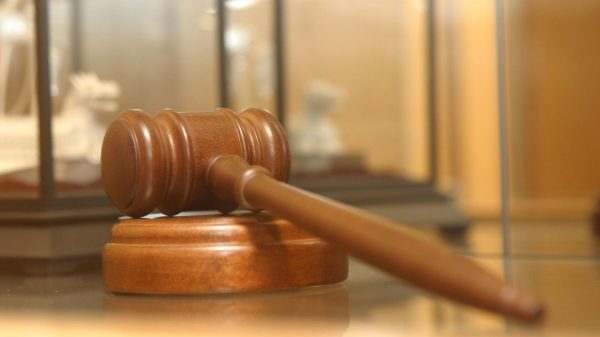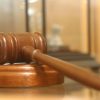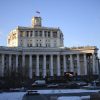 Pedro Sánchez is accused of pardoning Catalan leaders to stay in power. Photo: JAVIER SORIANO/AFP
Pedro Sánchez is accused of pardoning Catalan leaders to stay in power. Photo: JAVIER SORIANO/AFP
Spain's Socialist Prime Minister Pedro Sánchez was called a «traitor» after parliament passed a controversial amnesty for Catalan leaders who illegally sought independence for the region in 2017.
Mr Sánchez said an amnesty for Catalan separatists would help unite Spain, but the opposition party reminded him that he had previously said such a move was impossible and unconstitutional.
In a stormy session of Spain's lower house of Congress, Alberto Nunez Feijoo, leader of the conservative main opposition People's Party (PP), accused Mr Sanchez of «lying» and «laughing in people's faces».
Mr Feijoo said the amnesty was «political corruption», the only whose goal was to keep the Socialist prime minister's minority coalition in power thanks to the support of Catalan parties.
Under Mr. Feijoo's leadership, the PP became the largest party in Congress after last year's elections, but Mr. Sánchez managed to cobble together a slim majority with the support of left-wing, Catalan, Basque and other regional factions.
 Mr Feijoo accused Mr Sanchez of “lying”; and “laughing in people’s faces” Photo: Alberto Gardin/ZUMA Press Wire/Shutterstock
Mr Feijoo accused Mr Sanchez of “lying”; and “laughing in people’s faces” Photo: Alberto Gardin/ZUMA Press Wire/Shutterstock
Seven lawmakers from the Catalan Junta party, whose leader Carles Puigdemont fled to Belgium to avoid arrest after the announcement of Catalonia's secession from Spain, supported Mr. Sanchez as prime minister in exchange for negotiations on amnesty terms.
The amnesty was approved by Congress earlier and then rejected by the PP-dominated Senate, and was approved on Thursday by a vote of 177 in favor and 172 against.
When the Speaker called Mr Sánchez's name during an oral vote , the words of “traitor” were heard.
“You are going to pardon your partners just to stay in power,” Santiago Abascal, the party leader, told far-right Vox, looking across the government bench.
Mr Abascal argued that the amnesty “legitimizes political violence,» and accused Mr. Sanchez of «trying to cover up corruption.» Last month, the embattled prime minister took a five-day leave to consider his future after a judge said he would investigate allegations of corruption and influence peddling against his wife Begoña Gomez.
He said he would stay in office to restore democracy and accused conservative elites in politics, the judiciary and the media of smearing his wife's reputation.
Sánchez's U-turn on an amnesty for Catalan separatists sparked a series of daily protests outside the Socialist Party headquarters in Madrid last fall. At least 400 people are expected to benefit from the measure, which will paralyze legal proceedings against those accused of taking part in the illegal referendum of October 1, 2017.
“Today is a victory for Catalonia”
Key among those Mr. Puigdemont, who is under investigation on suspicion of embezzlement of public funds and terrorism-related crimes as an alleged leader of a separatist protest movement accused of violence, should receive a reprieve.Mr Puigdemont said he would be in Barcelona to take part in the debate on Catalonia's new president once the region's new parliament convenes next month, following elections on May 12.
Team source -on Puigdemont reported The Telegraph reports that the former Catalan president, who has since served as a member of the European Parliament, «will definitely return, whether he is arrested or not.»
The judge investigating Puigdemont's case in Spain's supreme court demanded application of a European arrest warrant against a politician, but the Catalan leader successfully fought against the detention in Belgian and EU courts.
Now the court will receive an arrest warrant for the politician. demand that Mr. Puigdemont's lawyers drop all proceedings, but may seek to challenge the constitutional basis of the amnesty. Mr Puigdemont was due to make the announcement live on social media on Thursday evening.
Oriol Junqueras, Mr Puigdemont's deputy prime minister in 2017, celebrated the passage of the amnesty law in Congress on Thursday.
< p> «Today is a victory for Catalonia, for all Catalans and for democrats around the world,» said Mr Junqueras, who remained in Spain after the referendum and spent the better part of four years in prison before he and six other Catalan politicians have been pardoned by Mr Sanchez's cabinet. He remains banned from holding public office.
Mr Junqueras recalled those who were «beaten with police batons» during the 2017 electoral vote and called on the Spanish government to allow a legal referendum on Catalonia's status. Mr. Sanchez promised that he would not agree to a referendum.























































Свежие комментарии